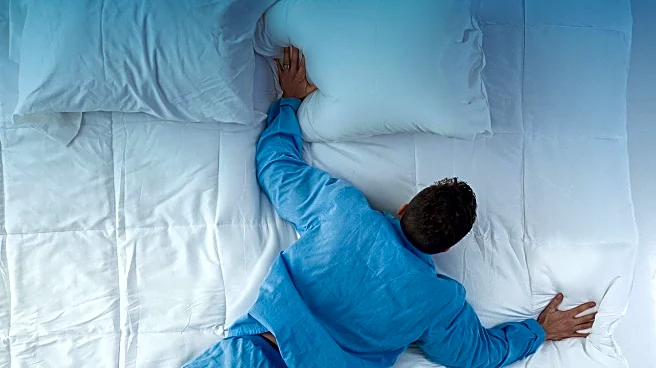What's Happening?
Dr. Chris and Dr. Xand van Tulleken, hosts of the BBC's 'What's Up Docs' podcast, are challenging the traditional notion that eight hours of sleep is necessary for optimal health. They argue that a healthy
sleep range can vary between six to ten hours, depending on individual needs. The doctors emphasize that anxiety around achieving eight hours of sleep can be counterproductive, noting that significant life achievements have been accomplished with less sleep. They advocate for a more flexible approach to sleep, including taking naps when needed, to reduce stress and improve overall well-being.
Why It's Important?
This perspective on sleep challenges long-held beliefs and could influence public health recommendations and personal habits. By promoting a flexible sleep schedule, the van Tulleken brothers aim to reduce anxiety associated with sleep deprivation and encourage individuals to prioritize their unique sleep needs. This approach may benefit those who struggle with insomnia or irregular sleep patterns, potentially leading to improved mental health and productivity. The shift away from rigid sleep norms could also impact industries focused on sleep health, such as mattress and sleep tracking device manufacturers.
What's Next?
The van Tulleken brothers' insights may spark further research into personalized sleep patterns and their effects on health. As public awareness grows, healthcare providers might begin to offer more tailored sleep advice, moving away from one-size-fits-all recommendations. Additionally, sleep-related industries could adapt their products and marketing strategies to align with this more individualized approach to sleep health.
Beyond the Headlines
The discussion around flexible sleep patterns touches on broader themes of mental health and societal pressures. By addressing the anxiety linked to sleep norms, the van Tulleken brothers highlight the importance of mental well-being and self-care. This conversation may encourage individuals to reevaluate other health-related habits and societal expectations, fostering a more holistic approach to personal health management.









